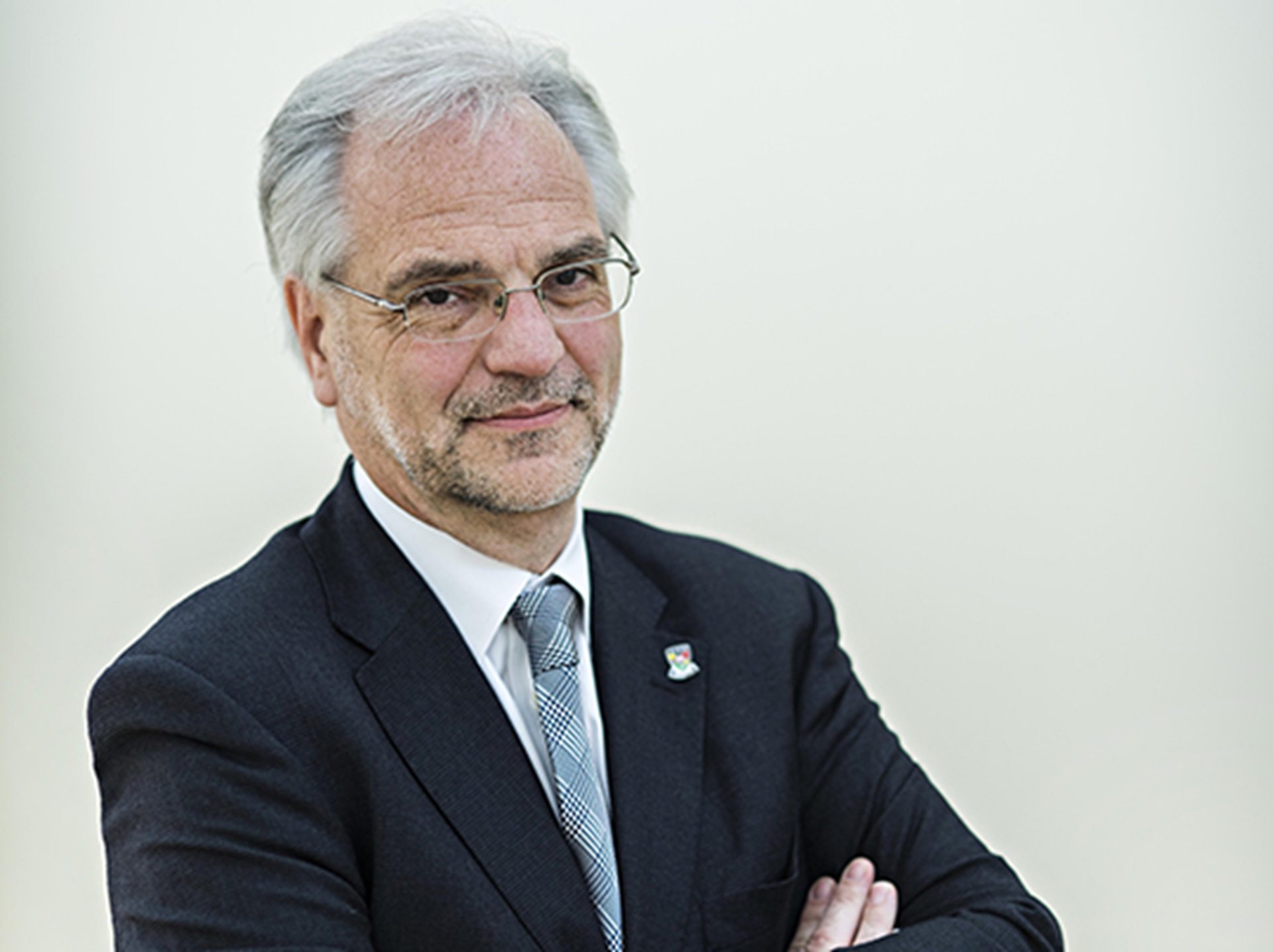Completion date: PhD (non-clinical) 1984
Professor Trevor McMillan was awarded a PhD in Biophysics at The Institute of Cancer Research in 1984. He is now the Vice-Chancellor of the University of Keele.
Trevor’s PhD signalled the beginning of a lifelong focus on radiation biology. He has since published over 80 peer-reviewed papers on the use of X-rays in radiotherapy and the harmful effects of long wavelength UV rays in sunlight.
His stand out memory from his early studies at the institute centres on the people. “There was a genuine feeling that all staff in all roles were contributing towards the overall aim. We were focussed on our research but also had time to discuss and debate,” he says.
Staying within academia, Trevor’s research led him on to become Head of DNA Damage and Repair Laboratory, also at the ICR. In 1995, he moved to the University of Lancaster where he held senior leadership roles before moving onto Keele in 2014.
Throughout his career, Trevor has continued to carry out world-class research into radiobiology. He has been awarded an Honorary Fellowship of the Royal College of Radiologists and Honorary Membership of the Royal College of Physicians. He is also a Fellow of the Royal Society of Biology.
His renowned knowledge and expertise has opened up many exciting opportunities. “I’ve been privileged to do extensive teaching in Universities and to medical professionals all over the world,” he says. “And I’ve also lectured as an invited speaker at both international and national conferences.”
Trevor has also held a number of national and international advisory roles and has also worked on several national committees that have examined the harmful effects of radiation in the environment. He also currently holds the role of Knowledge Exchange Champion for the Higher Education Funding Council for England (HEFCE), which aims to promote better collaboration between Universities.
“I am not the sort of person that has ever had a grand career master plan,” he says. “But my PhD created a very solid base for research and also established an experience that created a range of opportunities.”


).jpg?sfvrsn=83bdab30_1)